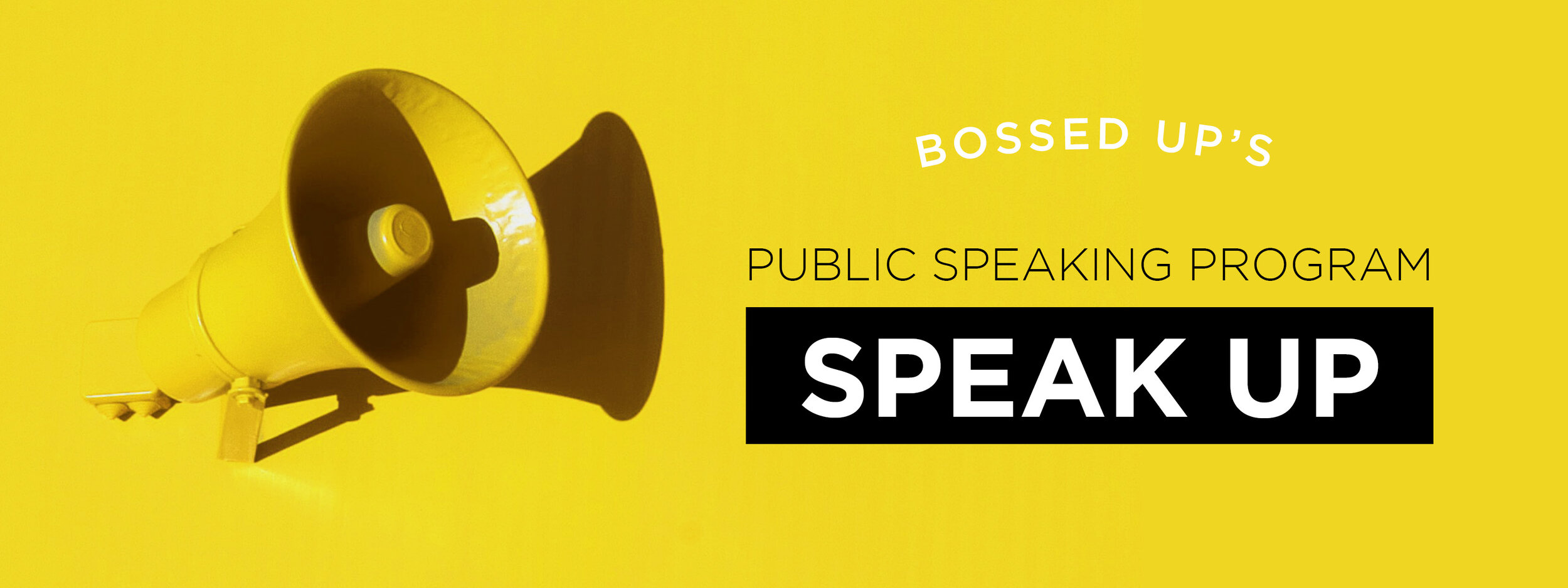The Truth About Women’s Communication at Work
Episode 417 | Author: Emilie Aries
If you ask 5 people for their advice on how women should speak up at work, you're likely to get 5 different answers.
It seems everyone these days has something to say about how women communicate at work. We're either too much or too little, too loud or too quiet, too direct or too passive, depending on who you ask.
There's always some click-baity article circulating about women and their speech in the workplace. For instance, there was this hot take in TIME that women should stop saying "sorry" so much, followed by a NYT clap-back that said no, actually men should just start saying sorry more. There was that Chrome browser extension designed to help you stop saying "just" in your emails, followed by a critique that telling women to eliminate “just” from our vocabularies is terrible advice. There’s long been a belief that women's passive language undermines our power at work, followed most recently by a new NYT opinion piece that says actually women know exactly what they're doing using passive language.
If this leaves your head spinning, you’re not alone. Oversimplified pop science makes for viral, click-baity articles, no doubt. But they're all missing the underlying complexity inherent in all human interaction and power dynamics in the workplace. And in doing so, they're robbing the women they proclaim to be helping from exercising the agency to make whichever communication choice they deem most appropriate.
The truth is, when it comes to gender, power, and the workplace: communication is complicated.
When I was tapped by the team at LinkedIn Learning to create a course all about assertive communication in the workplace, we went with the title, "Assertive Communication: An Empowered Choice" for a reason.
Contrary to the critics who might accuse me of perpetuating this unfettered policing of women's speech in the workplace, the work I produce around assertive communication - including my Speak Up assertive communication program - always comes with this caveat: what I present are just options.
"Assertive communication" is just one tool in your communications toolbox. The most important thing to remember, is that YOU get to decide how to respond when it comes to making your voice heard and speaking up at woirk.
We all know that reaching for a hammer every time you need a tool isn't the best way to go. And the same thing is true for rounding out your communications toolbox: we need a wide array of options to call upon that we feel comfortable using. Leveraging empathy can be helpful for coaching others and descalating tense situations at work. Assertiveness can be helpful when advocating for yourself or others. And redirecting or reinforcing language can be especially helpful for delivering clear feedback.
Know your goal and your audience.
The truth is: there's never been one singular formula, because it depends on two critical components of strategic communication: your goal and your audience.
It might be helpful to be assertive, use data, and incorporate storytelling techniques when you're giving a presentation and trying to persuade your board of directors to take swift action. But that might be the opposite approach to take if you're consoling a colleague who made a mistake, or even negotiating with a boss who you know is particularly threatened by your ambition.
Only you can use your best judgement to decide which communication tools to reach for in the moment. It’s my hope that all women have a wide array of options to choose from that they feel truly comfortable with.
But as much as I’m about being strategic in our communication choices, we also sometimes need to push back on society’s expectations. But we can't always defer to saying whatever will keep our audience in their comfort zone. We have to decide when bold action and advocacy is called for.
Know the public narrative, but don't be constrained by it.
And that's the one area where Adam Grant's most recent piece in the NYT really falls apart.
In making his case as to why women should just keep on using passive langayge whenever they feel like it, he cites a study where managers watched videos of people negotiating for higher pay:
"The participants were more willing to support a salary bump for women — and said they would be more eager to work with them — if the request sounded tentative: “I don’t know how typical it is for people at my level to negotiate,” they said, following a script, “but I’m hopeful you’ll see my skill at negotiating as something important that I bring to the job.” By using a disclaimer (“I don’t know …”) and a hedge “(I hope …”), the women reinforced the supervisor’s authority and avoided the impression of arrogance. For the men who asked for a raise, however, weak language neither helped nor hurt. No one was fazed if they just came out and demanded more money."
The apparent takeaway here, is that there's good reason to play into sexist stereotypes, or what Harvard Professor Marshall Ganz would call a "public narrative," or a known story about women, gender, and negotiation.
But how exactly do we change such a sexist public narrative, if not by flouting these expectations every now and then? Sure, we can prioritize our goals and audience, and presume that sexism will guide the decision-making of those in positions of power.
Or, every now and then, we can choose to refuse to play into society's expectations of us. And my underlying hope is that ever so slowly, we will change the public narrative, one personal choice at a time.
Unfortunately, there's no tweet-able hashtag that sums this up, other than to say that when it comes to women and communication at work: the choice is yours.











